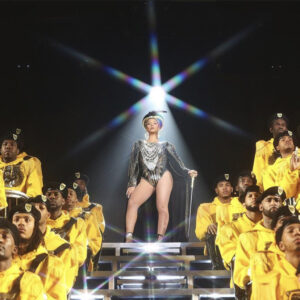
In recent years, there has been a movement to encourage African American students to attend historically black colleges and universities. Yet, many of them decide to attend predominantly white institutions in search of better opportunities and scholarships.
Beyoncé is one celebrity who used her platform to display the culture at an HBCU, but is that enough to convince African American students to choose HBCUs over PWIs?
Since its Netflix premiere on April 17, 2019, Beyoncé’s “Homecoming” documentary has been influential to many African Americans. The bold sounds of the orchestra, the beauty of the dancers and the quotes from prominent historical figures worked together to display the culture that is housed at many HBCUs across the nation.
The documentary impacted many young African Americans and developed a fascination with HBCUs, which led some people to want to attend them. But some feel that more needs to be done to get more African Americans interested in HBCUs.
Beyoncé is one of the most influential women in the entertainment industry. Her successful career as an entertainer and her work as a businesswoman have allowed her to have a large impact on many Americans. With 139 million Instagram followers, there is no doubt that she has influence over many people.
Although Beyoncé has a large influence over many Americans, she especially has influence over African Americans. Many of them look up to her and are interested in the things that she says and does.
Freshman psychology student, Jade Franklin, said, “Beyoncé is very significant and influential to the black community because she shows us, especially black females all around the world, that with hard work and persistence you can accomplish anything.”
Because Beyoncé is such an influential person, her “Homecoming” documentary was able to reach many people around the world and made them interested in HBCUs. She was able to take the culture and power of HBCUs and bring it to a platform where millions could learn and be intrigued by it.
“The ‘Homecoming’ documentary was very significant. It highlighted the importance of HBCUs. It highlighted some of the things that occur at HBCUs and if not anything I’m pretty sure it made some people want to attend HBCUs after her performance,” Franklin said.
Freshman biology student, Karalyn King, agreed with Franklin.
“I feel that more people were fascinated because what Beyoncé did was not a façade nor was it exaggerated. It gave a very nice and accurate representation,” King said.
Both Franklin and King had an appreciation for the documentary because they were already interested in attending an HBCU. Franklin said that she wanted to attend an HBCU because she always supports black people and she wanted to feel at home and loved.
She also said that she didn’t want to attend a school she wouldn’t have been allowed at years ago. King’s reasoning for choosing an HBCU was because she went to a predominantly white high school, and she wanted a new experience.
For Franklin and King, it seems that the documentary isn’t what made them want to attend an HBCU, but it exposed them to a culture that they were excited to be a part of. However, for some younger individuals, the documentary was the first thing to get them interested in the HBCU experience.
Abeba Salter-Liggins is an assistant principal in Hillsborough County Public Schools. She works closely with students and noticed that many of them had an interest in HBCUs after the documentary. She recalled that kids who had only been interested in the University of South Florida, which is located in Hillsborough County, were now interested in schools like Spelman or Howard.
While she felt that Beyoncé’s “Homecoming” documentary had a large impact on the younger minds, she went on to say that there’s not really a follow-through. She explained that high school students who were already interested in PWIs were not really influenced to attend an HBCU after the documentary.
Salter-Liggins feels that this is because Beyoncé’s “Homecoming” didn’t display the full college experience.
She recalled the late 80s and early 90s sitcom, “A Different World.” She said that a show like that displayed the entire college experience at an HBCU and was able to get more people interested in actually attending an HBCU. Beyoncé only displayed a small part of the culture, so it’s different.
It’s clear that the documentary was very powerful and essential to African Americans. It developed a sense of pride for those who were already interested in HBCUs, and it developed a fascination with HBCUs for those who had never heard of them.
It’s not Beyoncé’s obligation to convince African Americans to attend HBCUs. Salter-Liggins feels that alumni associations hold that responsibility. She stated that HBCU alumni associations need to do more to target and recruit African American students who want to attend PWIs.
Beyoncé brought the HBCU culture to the spotlight, but that isn’t enough. More needs to be done to win over the minds of young African Americans and show them that an HBCU is the best place for them.